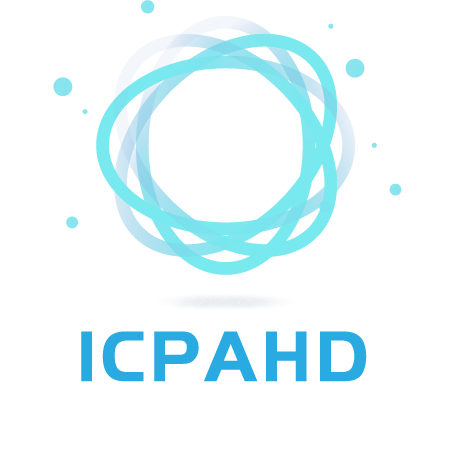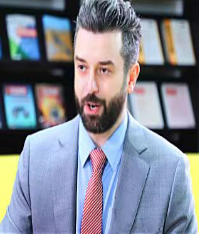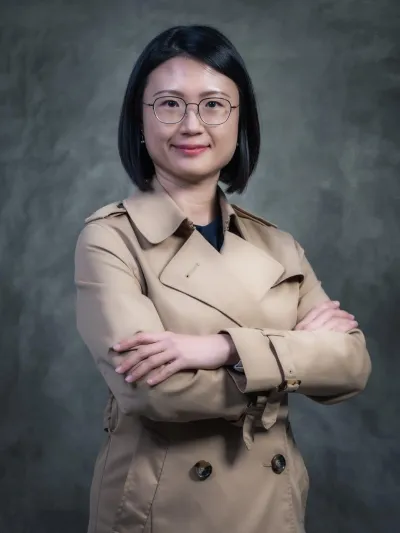

Prof. Yao Song
Sichuan University, China
Research Area: Innovation Design and Digital Creativity
Brief: Song Yao, PhD in Design, Hong Kong Polytechnic University (2021), Master of Management, Bocconi University, Italy (2014), Master of Economics, Shanghai International Studies University (2011), currently a distinguished researcher at the School of Literature and Journalism, Sichuan University, concurrently an associate researcher at the School of Design, Hong Kong Polytechnic University, and a researcher at the Korea Cultural Strategy Center. Worked as a user experience research expert at Alibaba Group. Specializing in the use of big data, neuroscience, computational communication and other methods to study art digitization, art management, intelligent design, and creative generation mechanisms.
He has published more than 30 academic papers, including more than 20 SSCI/A & HCI/SCI journals and 1 academic monograph; his design works have won the Gold Award of the American Mousse Design Competition; he has presided over and participated in the PhD Fund Project of the Hong Kong Research Grants Council, the National Art Planning Fund Project, the Innovation Humanities and Social Sciences Major Project of the Shanghai Science and Education Commission, the Anhui Philosophy and Social Sciences Planning Project, and the Shanghai Development Research Center Scholarship Project. He also serves as the President of the Design Branch of the International Art and Design Association (iSand), and was invited to serve as the Chairperson of the Design Branch at the Eurasian Art and Design Annual Conference held at University College London (ACAND2022).
Speech Title: From Brainwaves to Big Data: Dual Perspectives on Micro and Macro Social lmpacts
Abstract: Understanding the social impacts of technology demands a dual perspective that bridges the individual and societal levels. This work integrates neuroscience and artificial intelligence to examine these impacts from micro and macro viewpoints. At the micro level, it explores how media, education, and healthcare technologies shape human cognition, behavior, and well-being. Using advanced tools such as EEG and eye-tracking, the analysis uncovers insights into neural and emotional responses, highlighting the intricate dynamics of human-technology interaction. At the macro level, the focus shifts to cultural computing, where big data and Al methodologies reveal patterns in societal transformations, cultural evolution, and collective behavior over time. This integrated framework underscores the potential of interdisciplinary research to address critical challenges in an increasingly digital world, offering novel pathways for innovation and societal advancement.

Prof. Bradley C Freeman
Sunway University, Malaysia
Research Area: Radio and audio media studies, Political and environmental communication, Popular culture, society, and media, Comparative media systems
Brief: Professor Bradley C. Freeman is the Program Leader for the graduate programs in Creative Arts & Media at the School of Arts, Sunway University. Prior to this, he was Professor of Communication & Information Studies at the Mohammed Bin Rashid School for Communication at the American University in Dubai and Assistant Professor at the Wee Kim Wee School of Communication & Information at Nanyang Technological University, Singapore. Following grad school, he lectured at Marist College in Poughkeepsie, New York.
Professor Freeman is Editor of Culture, Media & Film for Cogent Arts & Humanities, a Taylor & Francis journal. He also serves as a representative for the Asian Media Information and Communication Center and the Communication Institute of Greece. He has authored several journal articles, book chapters, encyclopedia entries, and books, including Singapore Radio: Then & Now. His most recent grant project was with the Middle East Centre at the London School of Economics.
Professor Freeman is a graduate of the S. I. Newhouse School of Public Communications at Syracuse University and the University of Pittsburgh. He was also an exchange student at the University of Augsburg, Germany.
Professor Freeman has been an invited guest speaker at many universities and research centers throughout Asia, including Fudan University, Shanghai, China; University of the Philippines, Diliman; and De La Salle University, Manila, Philippines. He has conducted research as a selected Research Fellow attached to Fu Jen University, Republic of China.
Speech Title: Global Media Classroom: Bridging Cultures and Enhancing Learning through International Collaboration.
Abstract: The Global Media Classroom initiative, developed by five academics from diverse fields and campuses within the Lancaster University network, represents a pioneering effort in integrating cross-cultural collaboration into higher education. This program connects students from around the globe, fostering a global perspective on media and communication. By leveraging digital technologies, the initiative enables real-time interactions, collaborative projects, and shared learning experiences, enriching the academic journey and preparing students for the interconnected world of media. This keynote will explore the design, implementation, and outcomes of the Global Media Classroom, highlighting its impact on student engagement, cultural understanding, and academic achievement. It will also address the challenges faced and the strategies employed to overcome them, offering insights for educators looking to incorporate similar approaches in their curricula.

Prof. Asad Khalil
Southwest University of Political Science & Law, China
Research Area: Economics, Education, Law
Brief: Professor Asad Khalil is a distinguished scholar renowned for his expertise in law, education, and economic studies. With an illustrious academic background and a passion for interdisciplinary research, Professor Khalil has made significant contributions to these fields through his innovative research and teaching.Professor Khalil's interdisciplinary approach allows him to bridge the gap between law, education, and economics, offering fresh perspectives and innovative solutions to complex societal issues. As a dedicated educator, he inspires his students to think critically, engage with diverse perspectives, and contribute meaningfully to the advancement of knowledge and the betterment of society.Professor Asad Khalil is renowned for pioneering hybrid education methods, blending theory in the classroom with practical experience in real-world work settings. Additionally, he is celebrated as the founder of collaboration programs between prominent Chinese and Arab universities, fostering cross-cultural academic exchange and innovation.
Speech Title: Transforming Education: The Role of Practical Learning in Meeting Evolving Needs
Abstract: The modern world is changing at an unprecedented pace, making practical learning a crucial component of education. Traditional education is no longer enough to prepare students for the challenges they face. This speech will explore the benefits of practical learning and how it can enhance traditional education. We will discuss the importance of hands-on experiences, problem-solving skills, and creativity in the classroom. With a focus on meeting evolving needs, we will consider how practical learning can empower students to navigate the complexities of the modern world.

Assoc. Prof. Goh Yi Sheng
Sunway University, Malaysia
Research Area: Design for longevity, Place making, Consumer and aesthetics research, Community sustainability
Introduction: Associate Professor Dr Goh Yi Sheng is an Associate Professor and the Head of the Department of Art, Design and Media at Sunway University, Malaysia. She received her PhD in Consumer and Design Sciences from Auburn University. She is a design researcher who has a broad interest in creating solutions for a better society; among which include design for longevity, resilience, and well-being, consumer and aesthetics research, community sustainability and place making, and cultural and creative research. Her works are published in the International Journal of Disaster Risk Reduction, Journal of Product and Brand Management, Wacana Seni Journal of Arts Discourse, Advances in Southeast Asian Studies, and International Journal of Cultural and Creative Industries.
Speech Title: Empowering the Elderly: Creative Approach for Disaster Resilience in Urban Floods
Abstract: As climate change intensifies, urban areas worldwide increasingly face large-scale natural disasters, with significant impacts on vulnerable populations such as senior citizens. Traditional disaster management often centres on the average individual, overlooking the specific needs of ageing populations. This oversight is critical, especially in ASEAN countries like Malaysia, where rapid urbanization and climate change exacerbate disaster risks. By 2030, Malaysia is projected to become an ageing society, with senior citizens comprising a growing and highly vulnerable demographic.
In Malaysia, frequent floods, aggravated by rapid development and climatic change, present substantial challenges. Notable incidents, such as the catastrophic floods in 2010 in Kedah and Perlis, 2014 across many states, and the unprecedented 2021 floods, underscore the urgency for tailored disaster preparedness strategies.
This project investigates the specific needs of senior citizens during floods, based on insights from workshops with sixty elderly participants in the Klang Valley who experienced the 2021 flood. The findings highlight the emotional, evacuation, health, financial, and information needs of seniors during disasters. To address these needs, a comprehensive flood response kit was developed, including actionable steps for before, during, and after floods, mental health resources, and a to-do list for senior citizens with pets.
This initiative significantly enhances disaster preparedness among urban senior citizens, fostering greater safety, resilience, and awareness. It underscores the importance of inclusive disaster management strategies that cater to the diverse needs of all community members, particularly the elderly, in the face of escalating climate challenges.